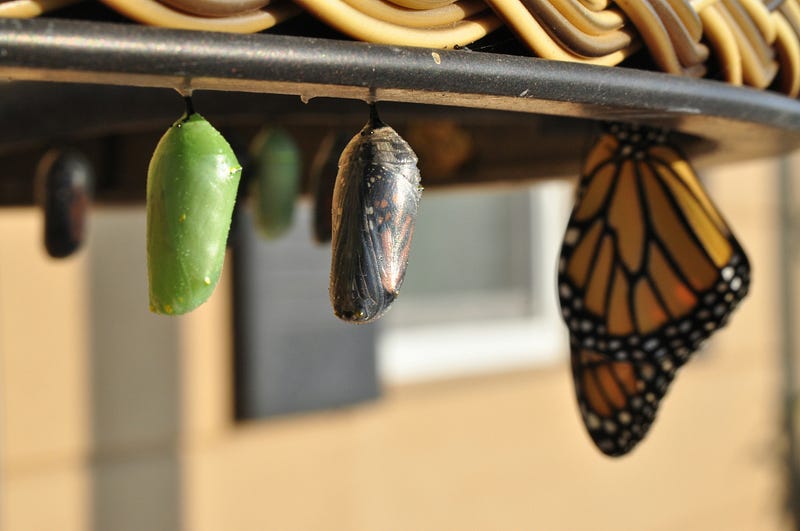
Not long ago, I thought I had the world (or at least my little corner of it) figured out. I had my playbook of what works and a shelf full of experiences to lean on. But we live in an era determined to humble each of us. Every time we think we know how things are, a new disruption comes along and asks us to think again. It’s as if the rules are being rewritten overnight by technologies we ourselves set in motion. In this moment of dizzying change, one paradox stands out: sometimes progress depends not on learning more, but on unlearning what we already know.
The Comfort of What We Know
We humans cling to our mental models and certainties because they make life navigable. Over years or decades, we build up understandings of how our work, our art, or our world is supposed to function. There’s comfort in that familiarity. A veteran software developer, for instance, might recall the satisfaction of mastering a programming language or a framework until it felt like second nature. A designer might pride herself on a signature style honed over countless projects. We carry these hard-won certainties like armor. They protect us, define us, and guide our decisions.
Yet history (and perhaps our own lives) shows that certainties have a short shelf life. Every so often, a seismic shift comes along and rattles the foundations. The skills or truths we were so sure about begin to look uncertain. In the past, these shifts came maybe once in a generation. Today, they seem to come yearly, or even faster. Think about the emergence of artificial intelligence into everyday work: it has happened with breathtaking speed. In late 2022, for example, a tool like ChatGPT leapt from research labs into the public sphere, gaining a million users in just five days. Suddenly, AI wasn’t just an academic concept; it had become personal, capable of drafting emails, writing code, even generating art. The very tools we casually introduced ended up challenging the assumptions we lived by. A lot of people looked at what this new AI could do and felt the ground shift under their feet. It wasn’t just a cool gadget; it was a direct challenge to the way we’d always done things.
The illiterate of the 21st century will not be those who cannot read and write, but those who cannot learn, unlearn, and relearn — Alvin Toffler
When Learning Means Letting Go
The hardest part of these transitions isn’t picking up the new skills, it’s the psychological effort to let go of the old ones. There’s a quiet, internal conflict whenever we’re faced with a need to change deeply held patterns. Part of us wants to stick to what we know because it’s worked in the past and forms part of our identity. Another part of us dimly recognizes that holding on too tightly might be holding us back. The tension between those two is very real. In fact, psychologists have observed just how stubborn old mental habits can be. The saying “old habits die hard” is more than a cliché; even in controlled experiments, behaviors we think we’ve extinguished have a way of resurfacing unexpectedly. We’re literally wired to hold on to what we’ve learned.
This makes sense if you consider how our minds crave stability. If you spend 10 or 20 years becoming really good at something, whether it’s Java programming or professional photography, that knowledge settles in you. It’s reassuring to know you have command over your domain. Now imagine being confronted with evidence that a lot of what you mastered might soon be obsolete or done differently. It’s not just a blow to the ego; it can feel like a small identity crisis. Are you still the expert you thought you were? What do you do, if the rules change? These questions are uncomfortable, sometimes even painful. I’ve had moments, especially recently, when I realized that a method or assumption I relied on was now outdated. A part of me wanted to reject the new thing outright; a knee-jerk reaction to protect that sense of competence. Only with time could I admit to myself that unlearning the old approach was the only way forward.
Interestingly, the notion that true skill in the 21st century lies in being able to unlearn and relearn was predicted decades ago. The futurist Alvin Toffler famously said that “the illiterate of the 21st century will not be those who cannot read and write, but those who cannot learn, unlearn, and relearn”. Think about that: in Toffler’s view, adaptability is the new literacy. It means that in a world changing as fast as ours, being able to toss out yesterday’s truths in favor of new ones is not just an advantage, but a necessity. It sounded almost radical when he wrote it in 1970, yet here we are living it. The radical changes he imagined have arrived, and they demand a flexible mindset from all of us.
The Shock of New Tools (and New Rules)
Nowhere is this dynamic more visible than in the realms of technology and creativity. Consider the software developer I mentioned, who spent years refining his coding skills. He wakes up one morning to find that an AI can auto-complete entire functions or suggest solutions to programming problems that took him hours to solve. At first, it’s thrilling. Who wouldn’t want a superpower that cuts out tedious work? But then a realization sets in: if the basics can be automated, what does his expertise mean? The mental model that “writing good code is the key value I offer” suddenly isn’t ironclad. One UK tech report recently admitted that we have no idea if “coding, as we see it now, will still be needed in 10 years’ time” once AI-assisted no-code tools become widespread. For developers, that’s both exciting and unnerving. It means that to stay relevant, they must pivot from being just code producers to something more abstract: maybe system designers, problem framers, or validators of AI output. In other words, they have to unlearn the idea that coding is all about keystrokes and syntax, and relearn it as a higher-level collaboration between human and machine.
Creative professionals are feeling a similar upheaval. A graphic designer who has spent a lifetime mastering color, form, and composition might open a generative art program and watch it produce in seconds what would take days by hand. It’s a marvel (the computer seems to possess a spark of artistic ability), but it’s also a shock. The model of creativity that many artists grew up with (“my value comes from the skill of doing this by hand, personally”) doesn’t hold the way it used to. When AI can mimic a style or compose a melody at the click of a button, the creative professional has to rethink what makes their work unique. Is it their personal vision? The story they tell? The taste to choose which AI outputs are worthwhile? The answer often lies in aspects of creativity that machines can’t easily replicate, but getting to that answer requires letting go of some pride and some assumptions. I’ve spoken to illustrator and writer friends who admitted, in hushed tones, that they initially felt almost betrayed by technology. They asked, “Is nothing sacred? Is nothing mine anymore?” But after that wave of disillusionment, the more resilient among them started exploring how they could use these tools to their advantage, much like photographers eventually embraced digital cameras. They began unlearning the notion that using a tool cheapens the art. Instead, they relearned what actually matters in their craft: the ideas, the imagination, the human touch behind the tool’s output.
Even entrepreneurs and business leaders, the people often driving change, are not immune to having their mental models upended. A founder who achieved success in the last decade might have a playbook that worked back then (a way of reaching customers, building a team, generating revenue) all based on the conditions of the time. But conditions evolve. Suppose you built a company culture around open-office collaboration, and suddenly remote work becomes the norm (accelerated by technology). Or you assumed customers prefer human interaction, and now many actually choose automated self-service if it’s faster. I recall a conversation with a startup CEO who said he had to “rewire” his approach to product development once AI-driven features became standard. His old instincts told him to rely on user feedback and manual iterations. His new reality required him to also trust algorithms, data patterns, and AI predictions, none of which he was originally trained to do. He had to unlearn the bias that “only human intuition can make good product decisions” to keep up with competitors harnessing AI. Stories like this are becoming common. The point is, no matter how high up or experienced you are, you might find yourself having to question the very logic that brought you success in the first place.
Embracing the Uncomfortable Path
All this change can feel exhausting, especially for those of us who have invested so much in becoming good at what we do. It’s deeply human to feel that exhaustion. There’s a moment many of us experience, perhaps late at night after grappling with some new tool or concept, where we think: “Do I really need to start over again?” In that moment, it’s tempting to double down on the old ways, to insist that the old models still work just fine. After all, if we don’t change, we don’t have to face being novices again or risk failure in unfamiliar territory.
But here’s why it matters that we push through that discomfort: the world is not slowing down for us. Technology isn’t waiting until we feel ready. If anything, the pace of innovation is still accelerating. To thrive, or even just to function, we have to keep up. And keeping up doesn’t mean frantic, endless learning of every new thing; it means learning the right things, and just as importantly, unlearning the outdated things. It’s a kind of intellectual agility. The leaders and thinkers who handle these transitions best seem to share one trait: humility. They don’t see themselves as all-knowing experts, but as curious students. Satya Nadella, the CEO of Microsoft, captured this idea well when he contrasted “know-it-alls” with “learn-it-alls.” In his view, someone who might start with less innate talent but remains always willing to learn will eventually outperform someone who clings to what they already know. It’s a profound shift in attitude, a move to value curiosity over certainty, and it’s something we can all practice personally.
Practically, how do we embrace unlearning? It often starts with a pause and a deep breath. We have to give ourselves permission to not know everything, which is oddly difficult for high achievers. It helps to remember that not knowing isn’t a personal failure, it’s a momentary step in the larger process of learning. In my own life, I’ve tried to reframe these moments as opportunities. When a new AI tool or paradigm knocks me back to beginner status, I try (sometimes through gritted teeth) to view it with the eyes of a curious novice rather than an expert who feels threatened. That mindset doesn’t erase the hard work I’ve done; it builds on it. Yes, I might need to abandon a method or a concept that I was proud of. But doing so doesn’t erase my experience. It just asks me to apply that experience in a new way.
There’s also something liberating in shedding old assumptions. It’s a bit like cleaning out a cluttered attic. At first, you resist because every item feels like a treasured memory, but once it’s cleared, you have space to grow again. Many developers, founders, and creatives who have navigated multiple waves of change tell me they’ve learned to love the feeling of being a beginner again. It can spark new creativity and curiosity that perhaps had dulled over years of routine. If you’ve ever taught someone much younger than you, you might have noticed how teaching them also made you revisit fundamentals and see things from a fresh angle. Unlearning works in a similar way: it forces us back to fundamentals, back to questions like “What problem am I really trying to solve?” or “What experience do I actually want to create?” Those basics never go out of style, even if the tools to achieve them do.
In times of change, learners inherit the earth, while the learned find themselves beautifully equipped to deal with a world that no longer exists — Eric Hoffer
Why It Matters to All of Us
It’s worth emphasizing that this is not just a tech industry phenomenon. Yes, I’ve drawn examples from software and art because that’s where AI’s impact is dramatic right now. But this mindset shift, the willingness to abandon the comfort of our expertise, is something every field will need. Whether you’re a doctor adapting to new medical AI systems, a teacher rethinking education in an age of online information, or a marketer dealing with consumers empowered by technology, the story is similar. We are all students again in a rapidly changing school, and the curriculum keeps updating. The sooner we accept that, the less painful it becomes.
Importantly, “unthinking” old ways doesn’t mean dismissing everything that came before. It means carrying forward the core of what’s valuable and being ready to discard the shell that no longer fits. You might unlearn the exact tool you used, but not the underlying insight it gave you. The developer who no longer writes boilerplate code by hand still uses his understanding of algorithms and architecture, in fact, freed from drudgery, he can use that knowledge more creatively. The artist who no longer mixes paint can still apply her unique sensibility to direct an AI to achieve a vision, something no one else could prompt quite the same way. In this sense, unlearning is really learning on a loop, we continuously cycle through it, each time hopefully at a higher level of understanding.
As we reflect on this era of thinking to unthink, it helps to find solidarity with others going through the same. None of us has a manual for this, really. We’re writing it as we go. But we do have some guiding stars: curiosity, resilience, and empathy. Empathy not just for others, but for ourselves as we navigate the discomfort. It’s okay to mourn the passing of a familiar way of doing things; that just means it mattered to you. But it’s also necessary to then roll up our sleeves and get curious about what’s next.
The philosopher Eric Hoffer once noted that “In times of change, learners inherit the earth, while the learned find themselves beautifully equipped to deal with a world that no longer exists”. That quote has always struck a chord with me, and never more so than now. Our world is reinventing itself in real time. Clinging to how it used to work can leave us stranded. Instead, we’re being invited (or perhaps compelled) to participate in the reinvention. That means adopting a stance of continual learning and unlearning. It means being willing to question even our most successful formulas and ask, “Is this still true? Is there a better way now?”
This shift in thinking is not easy, but it is profound. We’re talking about nothing less than evolving our mindset to match an era of relentless change. If you’ve ever stood on the shore and felt the sand wash out from under your feet with each wave, you know the feeling. It can be unsettling, yes, but there’s also a wonder in it. Because each wave also reveals something new: new shells, new patterns in the sand, a fresh start. In the same way, each time we unthink an old certainty, we make room to discover new insights and possibilities.
In the end, an “era of thinking to unthink” is a challenge, but it’s also an invitation. It’s inviting us to become more agile thinkers and, maybe, wiser humans. We get to practice humility and curiosity, to blend our hard-earned wisdom with a beginner’s openness. We won’t always get it right, and that’s fine. What matters is that we stay in the practice. Because the future will belong not necessarily to the fastest innovators or the loudest voices, but to those willing to keep their minds flexible, their hearts open, and their spirits ready to learn, unlearn, and learn again.
Enjoyed this piece?
If this piece was helpful or resonated with you, you can support my work by buying me a Coffee!

Become a subscriber receive the latest updates in your inbox.

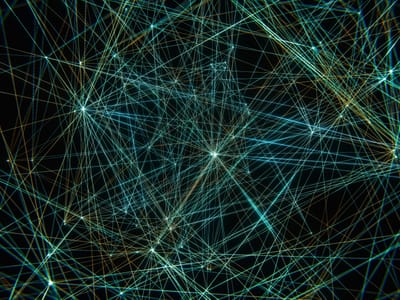
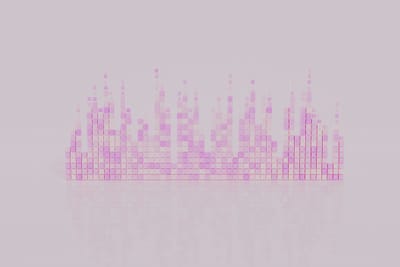
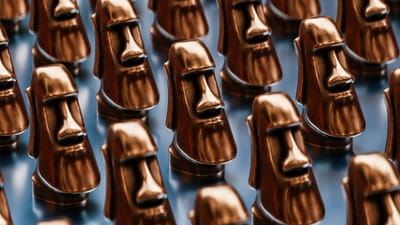
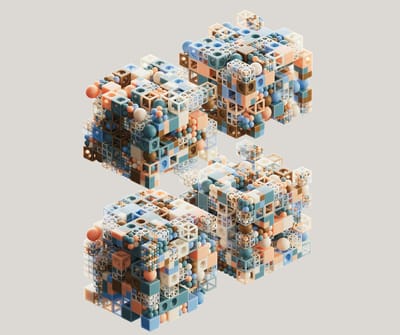
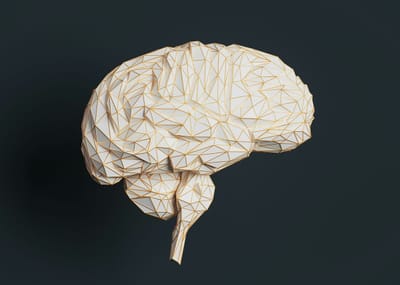
Member discussion